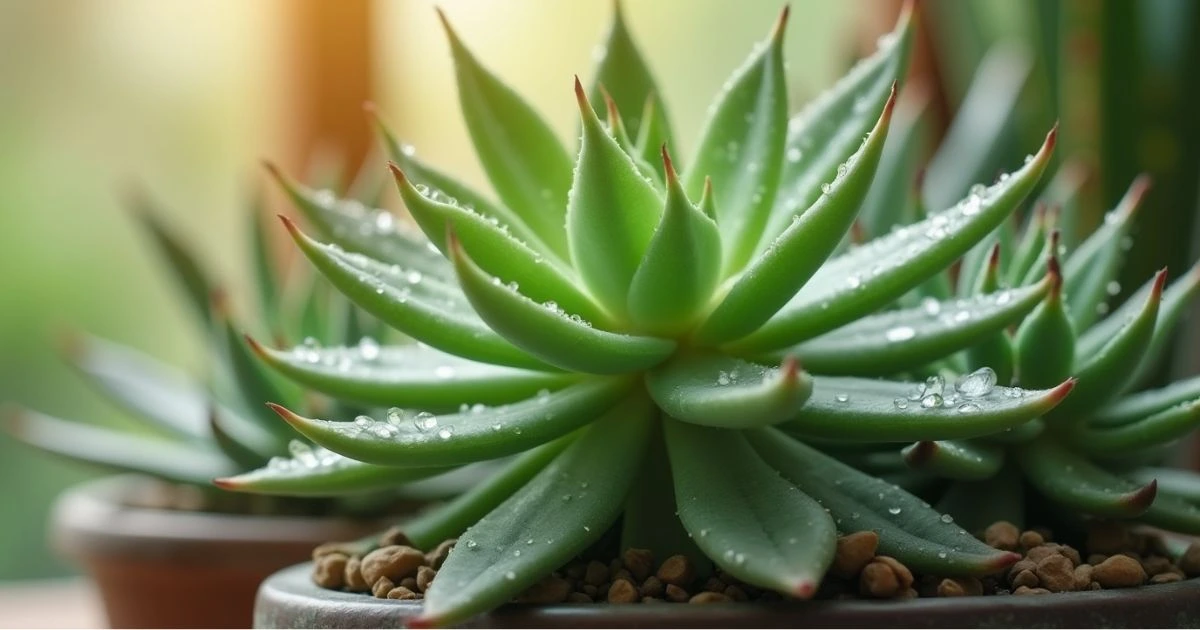Imagine a world where your home decor not only elevates your living space but also nurtures your well-being. Healing succulent plants offer that unique blend of beauty and practicality. These remarkable plants are not just trendy but also incredibly beneficial for your health and environment. Whether you’re a seasoned gardener or a curious beginner, you’ll love discovering the transformative benefits of succulents. Let’s dive into how these medicinal succulents can enrich your life and bring a touch of nature’s healing power into your home.
Table of Contents
What Are Healing Succulent Plants?
Understanding Succulents
Succulents are a fascinating group of plants that store water in their thick leaves, stems, or roots. This unique ability allows them to thrive in arid environments where other plants struggle. Their hardy nature and minimal care requirements make them a favorite for indoor and outdoor gardening enthusiasts.
Popular healing succulents include:
- Aloe Vera: Celebrated for its skincare and medicinal properties.
- Jade Plant: A symbol of good luck that also improves air quality.
- Snake Plant: Known for its excellent air-purifying capabilities.
- Echeveria: Loved for its aesthetic charm and mild skin benefits.
7 Incredible Benefits of Healing Succulent Plants
1. Natural Skin Soothers
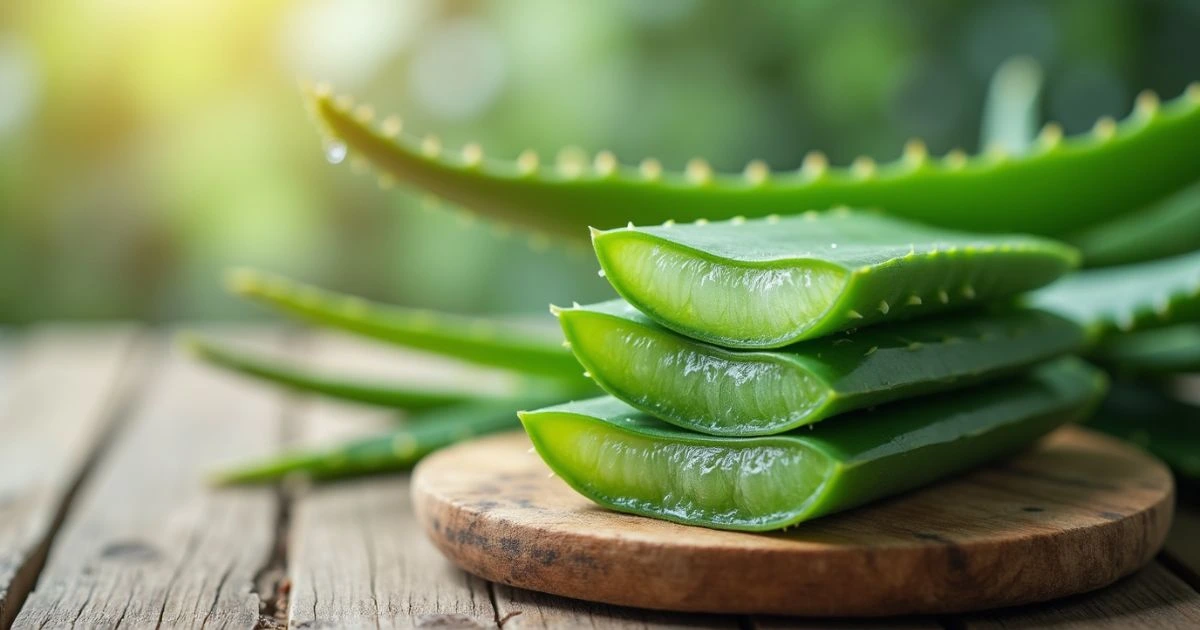
One of the most well-known medicinal succulents, aloe vera, is a skincare superstar. Its gel contains anti-inflammatory and hydrating properties, making it a natural remedy for burns, sun damage, and minor wounds. This plant has been used for centuries in traditional medicine to promote healing and improve skin texture.
Beyond burns, aloe vera gel can:
- Reduce redness and irritation caused by acne.
- Hydrate dry skin without clogging pores.
- Accelerate the healing of minor cuts and abrasions.
Quick Recipe for Aloe Vera Gel:
| Ingredient | Quantity | Usage |
| Aloe vera gel | 1 tbsp | Apply directly to the skin |
| Coconut oil | 1 tsp | Mix for added hydration |
2. Improve Air Quality
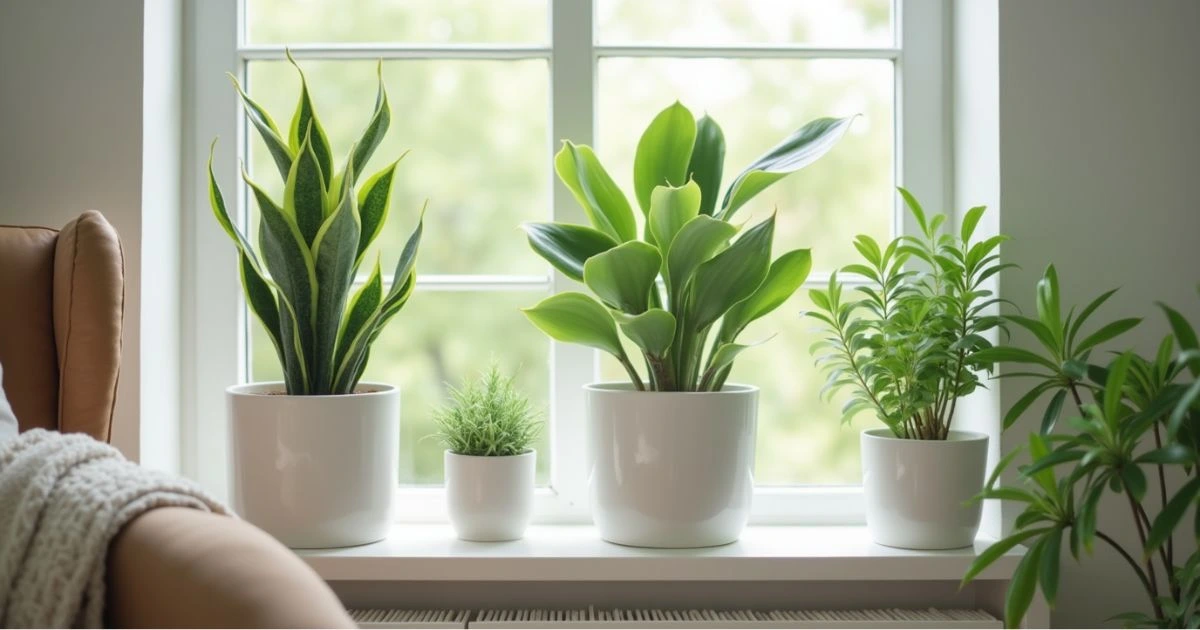
Succulents like the snake plant and jade plant actively remove harmful toxins such as benzene, formaldehyde, and carbon dioxide. They are natural air purifiers, making your indoor space healthier and fresher.
Did You Know? NASA’s Clean Air Study highlighted the air-purifying properties of these plants, proving they can filter common indoor pollutants.
Adding succulents to your home can:
- Reduce the symptoms of allergies caused by poor indoor air quality.
- Create a fresher and more breathable environment.
- Minimize exposure to harmful chemicals often found in household cleaning products.
3. Boost Mental Health
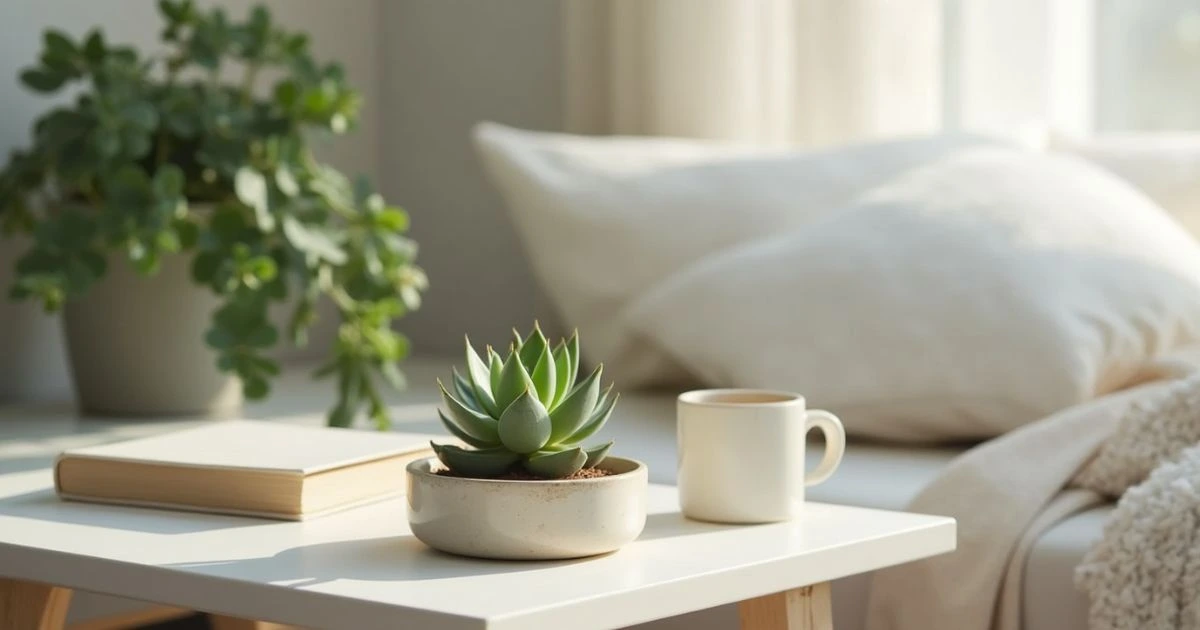
Indoor plants, including succulents, are proven to improve your mental well-being. Research indicates that they reduce stress and anxiety, improve focus, and foster a calming environment. The act of caring for plants also provides therapeutic benefits, helping you feel more connected to nature.
Pro Tip: Keep succulents in your workspace or bedroom to enhance these mental health benefits.
Additional mental health benefits include:
- Improving mood and fostering creativity.
- Providing a sense of accomplishment when you see them thrive.
- Offering a calming presence that helps lower blood pressure.
4. Easy-to-Grow Healers
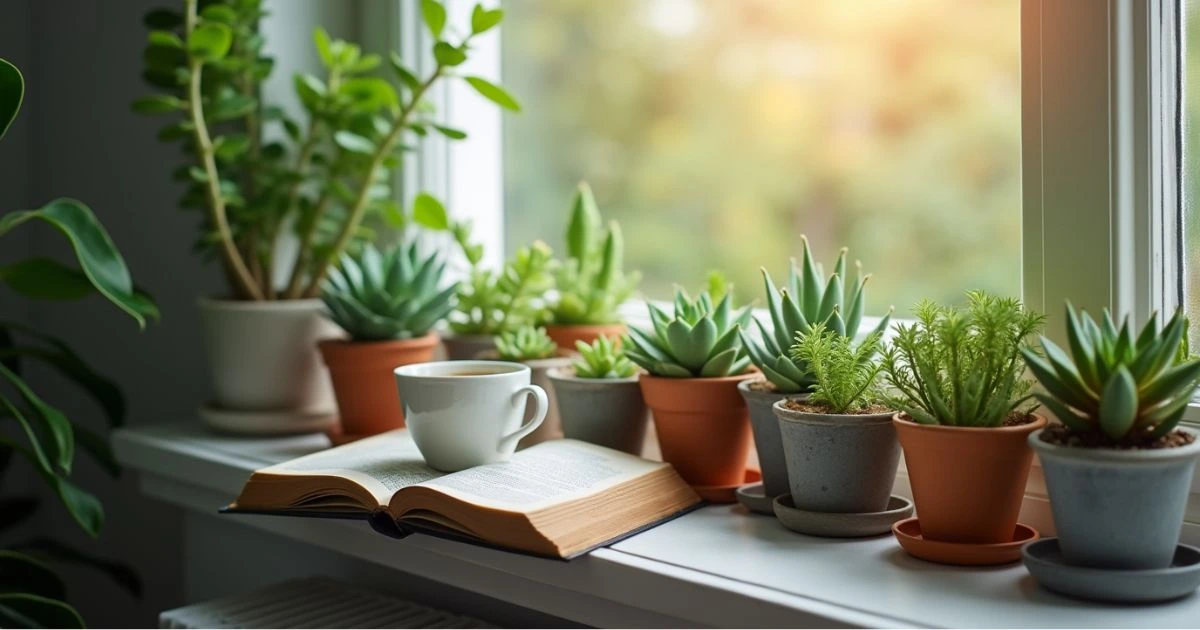
Healing succulents are ideal for busy lifestyles. Their low-maintenance nature means they thrive with minimal care, making them perfect for:
- Small apartments.
- First-time gardeners.
- Low-maintenance gardens.
Succulents’ resilience allows them to:
- Survive extended periods without water.
- Thrive in a variety of light conditions.
- Grow in compact spaces, making them ideal for urban living.
5. Natural Humidifiers

Succulents release water vapor, subtly improving indoor humidity levels. This benefit is especially helpful in dry environments where you might experience respiratory issues or dry skin.
Increased humidity can:
- Alleviate symptoms of dry eyes and throat.
- Help prevent skin from becoming excessively dry.
- Support overall respiratory health, especially in winter months.
6. Aid in Digestive Health
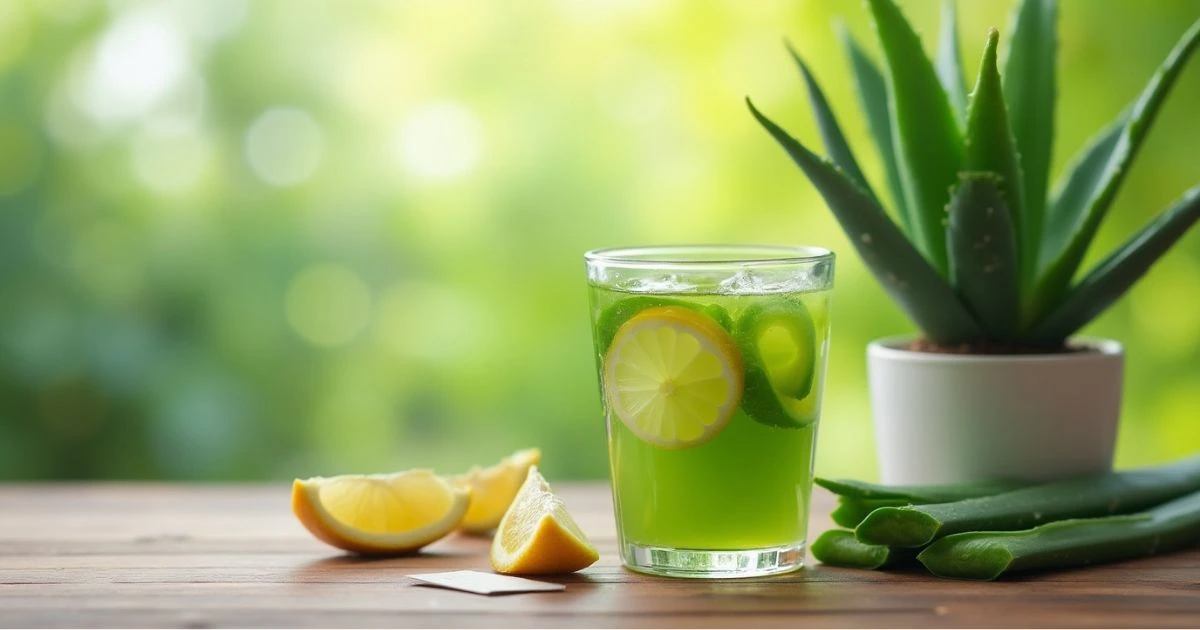
Aloe vera juice is a well-known natural solution for digestive problems. This medicinal succulent helps soothe upset stomachs, relieve constipation, and detoxify your body. Its high water content and natural enzymes contribute to its effectiveness as a digestive aid.
Additional benefits include:
- Supporting liver health by reducing oxidative stress.
- Helping balance your body’s pH levels.
- Encouraging healthy gut flora.
Quick Recipe for Aloe Vera Juice:
| Ingredient | Quantity | Instructions |
| Aloe vera gel | 2 tbsp | Blend with water |
| Lemon juice | 1 tsp | Add for flavor |
7. Versatile in Beauty Treatments
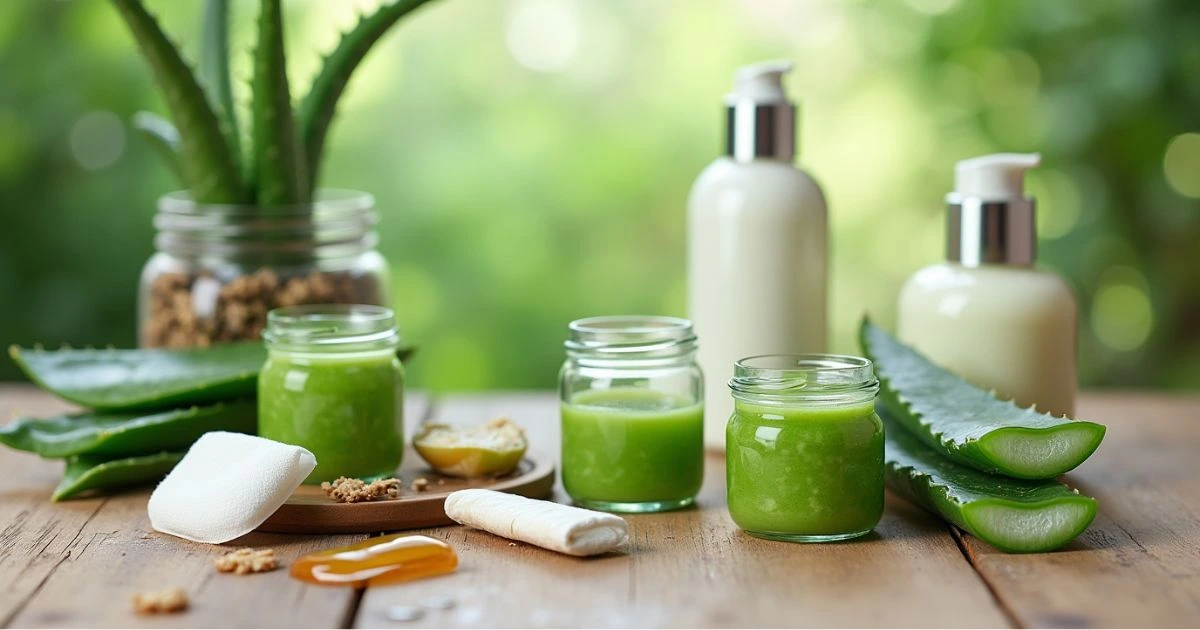
Aloe vera is a common ingredient in DIY skincare and hair care products. It works wonders for moisturizing your skin, reducing acne, and conditioning your hair naturally. The antioxidants and vitamins in aloe vera contribute to a glowing complexion and healthier hair.
Additional uses include:
- Creating a natural face mask to soothe irritation.
- Mixing with essential oils for a nourishing scalp treatment.
- Using as a gentle makeup remover that also hydrates skin.
Additional Benefits of Healing Succulent Plants
8. Promote Better Sleep
Some succulents, like the snake plant, release oxygen at night, unlike most plants that release carbon dioxide. This unique trait improves air quality in your bedroom and promotes restful sleep.
Tip: Place a snake plant on your nightstand for maximum benefit.
9. Symbolic and Feng Shui Benefits
The jade plant is commonly associated with wealth and prosperity in Feng Shui. Adding one to your home or office can attract positive energy and good luck. Its presence is believed to harmonize spaces and create a sense of balance.
10. Eco-Friendly Decor
Succulents are sustainable decorative options that require less water and maintenance compared to other plants. They also last longer than cut flowers, reducing waste and saving money. Their adaptability to different environments makes them a versatile option for any decor style.
11. Educational and Fun for Kids
Teaching children to care for succulents can be a rewarding educational activity. These plants provide an opportunity to learn about:
- Plant biology and photosynthesis.
- The importance of sustainable living.
- Responsibility and the joy of nurturing life.
12. Therapeutic Benefits for Seniors
Succulents are excellent companions for seniors. Their low-maintenance characteristics make them easy to care for, even for individuals with limited mobility. Taking care of plants has been shown to:
- Reduce feelings of loneliness.
- Provide a sense of purpose.
- Enhance motor skills through light gardening activities.
How to Grow and Care for Healing Succulent Plants
Light and Temperature Requirements
Succulents thrive in bright, indirect sunlight. Ideally, you should provide them with 4-6 hours of light daily. They thrive in temperatures ranging from 60°F to 80°F (15°C to 27°C).
Watering Tips
A common mistake when caring for succulents is overwatering. Here are some tips:
- Overwatering is a frequent mistake when caring for succulents.
- Choose pots with drainage holes to avoid waterlogging.
Best Soil Mix for Succulents
A well-draining soil mix is crucial for healthy succulents. Combine:
- 50% sand.
- 25% potting soil.
- 25% perlite.
Common Pests and How to Handle Them
While succulents are hardy, they can occasionally attract pests like mealybugs and spider mites. Fight these pests with natural solutions such as neem oil spray or by wiping the leaves with a gentle soap solution.
FAQ Section
1. Which healing succulent plants are best for beginners?
Aloe vera, jade plant, and snake plant are easy to grow and offer incredible benefits.
2. Can succulents really purify indoor air?
Yes, succulents like the snake plant and jade plant remove toxins such as benzene and formaldehyde.
3. How can I use aloe vera to treat burns?
Apply fresh aloe vera gel directly to the affected area for instant relief.
4. What’s the best soil mix for succulents?
A combination of sand, perlite, and potting soil works best for succulents.
5. Can succulents grow indoors without sunlight?
Yes, they thrive under grow lights or in bright, indirect light.
6. How often should I water succulents?
Water every 2-3 weeks or when the soil has dried out completely.
7. Are succulents safe for pets?
Some succulents, like aloe vera, can be toxic to pets. Research before bringing one home.
8. Can I propagate succulents at home?
Yes, simply cut a healthy leaf or stem and allow it to root in soil or water.
9. Do succulents attract pests?
Overwatered or stressed succulents may attract pests like mealybugs. Proper care minimizes this risk.
10. What’s the lifespan of a succulent plant?
With proper care, succulents can live for several years, with some species lasting over a decade.
Conclusion
Healing succulent plants are more than just beautiful additions to your home—they are nature’s multi-taskers. From improving air quality to boosting your mental health and enhancing your beauty routine, these plants bring countless benefits to your life. Start incorporating succulents into your space today and experience their healing power firsthand. Don’t forget to share your favorite healing succulent or a benefit you’ve experienced in the comments below. Let’s grow together!


